How to Be Free of Your Blocks (even if you didn’t know you had them)

by Michael Feeley
HAVE YOU EVER FELT STUCK? That something holds you back or blocks you from moving forward and
you don’t know what it is?
You make choices all day long about what’s best for you.
You want to be happy and comfortable; to remove stress from your life and have some solid, steady peace and harmony.
The choices you make may or may not always be the best, but all your choices accumulate; they add up and make you who you are. They become your life values and beliefs. If your choices are based on inaccurate ways of thinking, then you get jammed up – blocked.
You may not even know it but it can show itself in being sad, impatient, judgmental, tired, overly self-critical, bored or managerial.
You want to make changes but you don’t know how. You’re fearful and tense. Self-doubt pokes at you and you’re at a standstill. Deadlocked.
How do you figure out what gets in your way, so you can break through and be truly happy and successful?
What’s a block?
Blocks are obstacles; things that prevent you from living up to your potential; being all you hope to be and were born to be.
There are two kinds of blocks.
Outer blocks, which are external things that you usually don’t have control over. It’s out of your hands. Such as:
-
-
- Not having enough money to do something like going back to school.
- Not having the right skill set for a job, such as speaking and writing Dutch.
- Not having the time or knowledge to do something.
-
Inner blocks are internal things you create and believe in, but they may interfere with you.
Each of us has a belief system that comes from our life experience of living in the world. It’s specific to just you. The good and important news is this – if your personal belief system is not working for you in a positive, healthy way, you can change it.
Coaches help clients change their beliefs. We assist you to be better aligned and balanced so you can manage and enjoy your life in a more comprehensive and unified way.
I didn’t know I had blocks
I thought I was in charge of my own life, but also controlled by a variety of circumstances. Sure, I had built walls around myself with my opinions, choices, decisions, judgments, rules, expectations, disappointments; all kinds of things that happened to me in my life. It’s natural. You think you’re protecting yourself. It’s how you live. It’s part of life.
It was easy for me to blame other people and situations for my own unhappiness and troubles, instead of critically looking at myself and the choices I made. I didn’t know how to do it; how to get at what wasn’t working and change it. Thinking about it scared me too.
A big light went on when I started studying and digging into how I saw the world. It included family, education, money, work, notions of success, love, happiness and much, much more.
I discovered blocks – beliefs that prevented me from living my life with freedom, ease and happiness.
Here are some examples:
-
-
- I thought the world owed me something.
- Life was a painful struggle, and always would be. I was dealt a bad hand.
- I had to work hard for everything I ever had.
- When good things happened, I waited for the rug to be pulled out from under me.
- While I professed to trust people, I really didn’t.
-
I was a jumble of blocks and expected that life would always be like this.
It was exciting to discover these opinions and to examine them. Where did they come from in me? What was my evidence for these judgments? What was the truth?
The G A I L S
Here are four big energy blocks * The G A I L S* (as we called them in coaching school) that helped me know myself better; to go deep and be kind, as I explored who I was and how I thought.
G – Gremlins
A – Assumptions
I – Interpretations
L – Limiting Beliefs
These four concepts assisted me to change and to find my truth.
I began to loosen up tight ideas, notions, beliefs that I had. Some were good and some not, but I was freeing myself from ways of seeing and thinking that trapped me.
One immediate change was looking at what I saw as mistakes; things I was deeply ashamed of. You know…you think about them and you’re totally mortified; wiped out with embarrassment.
I learned this — There are no mistakes. Everything is a learning experience.
Instantly I felt some freedom with these four words – ‘There are no mistakes’.
-
-
- What could I learn from this incident?
- Was it really a mistake?
- What is the opportunity here?
- What is the gift for me in this event?
-
One of my largest regrets, that I carried around for years, disappeared and I felt tremendous relief because instead of punishing myself for what I saw as bad, I was reframing it, seeing it in a new light, shifting my fixed idea into something positive…a lesson to learn from and grow with.
The negative energy of anger and pain was released and the relief I felt was positive hope, acceptance, calm and new motion forward.
The purpose of our work as coaches is to create positive change.
It takes courage to look at yourself and your blocks. The work can be profoundly challenging and emotional but so worth it because you get hope and start to feel good.
And – with a Coach, right at your side, you have a trusted partner to help you explore your self with tools and knowledge that really work. You’re not alone.
Coaching is a powerful relationship for people making important decisions in their lives. Coaching creates a context where people regularly work on the most important issues of their lives. Coaching functions on a process level to help people understand who and where they are in their lives. – Co-Active Coaching by Laura Whitworth, Henry Kimsey-House and Phil Sandahl
So — Here we go!
1. Gremlins are real things
Every one of us has an inner critic, a heckler…the nagging voice that lets you know, in some way — ‘You’re just not good enough.’ It comes up at special times and its purpose is to knock you down and stifle your ambitions.
Your Gremlin thrives on fear and doesn’t want you to be successful.
A coach enables a client to acknowledge this voice and by doing so, lessens the power the gremlin has.
To name it and give it form also removes a lot of its power and allows you to see that this voice is not really you – not your whole self, which is large, bold and confident.
Your gremlin is a very small part of who you truly are.
My gremlin’s actual form is a gargoyle statue — a foot tall, pale white, extremely thin, with a wide open mouth crying upwards with complaint. His name is Val, after the vindictive troublemaker Valmont, in the play, ‘Dangerous Liaisons’.
He can be cruel and calculating. Telling me in various ways – ‘You’re not worth it, Michael.’
Those are his particular words to me.
He comes out when I’m fully confident, focused and charging forward with clarity and purpose, ready to achieve my goal. He attacks my writing, grammar, ideas, and approaches to life. When I’m at my happiest he often throws a tantrum to sabotage me, ambushing me with handfuls of doubt.
Your gremlin wants you to play small, especially when there are big opportunities all around you.
Don’t allow this block, your gremlin, to run you. Tell him or her to, get lost!
[Stand-by for my next article. I’ll be talking exclusively about gremlins, because calling out gremlins is one of my favorite things to do.]
2. It always happens like this
An assumption is something you believe to be true but can’t really prove. It’s an expectation you have that because something happened in the past, it will absolutely happen again.
This is a gold mine of a block.
Coaches challenge your assumptions so new perspectives can be looked at. We enable you to see the assumption for what it is and then make a choice to release it and move forward. You adjust, open up and make better conscious choices.
The important question a coach asks to encourage the change is this – ‘Just because this happened before, why must it happen again?’
Here are some of my assumptions I discovered in coaching school:
-
-
- I assumed as I cold called for new business, I would be hung up on.
- I assumed as I submitted my resume, I would never hear from a real person.
- Because I worked hard at school I assumed I would always be on the Dean’s List.
- As a successful recruiter, I assumed I would always have a job and retire on my terms.
-
Look at your own assumptions and those of other people. You’ll find them everywhere. In the news, politics, books, movies, job descriptions, company profiles. It’s a surprising, fun exercise and very educational.
3. Here’s my take on it
An Interpretation is your particular view or opinion on something. It comes from personal experience about a situation, a person, or an event and you think it’s true.
It’s pretty one sided and excludes lots of other possibilities because you’ve decided your way of seeing it is right and the only explanation.
Recently a friend casually said he would like to sit next to me at dinner on Tuesday night and I said, ‘What dinner?’ He mentioned where, and I said I hadn’t been invited. Instantly I interpreted it to mean that these people didn’t like me, didn’t want to spend time with me, that I was too formal, opinionated, loud, didn’t like to sit around and gossip and a few other reasons. I went to town on this and later discovered that none of it was true. It was my interpretation.
Coaches examine an interpretation by having you look at it in many different ways.
-
-
- Give me 3 other ways of seeing this event.
- How would your partner see what happened?
- Turn it around – What’s the complete opposite way of seeing this?
- How can you let go of that belief right now?
-
Think about your e-mails. How often do you interpret or misinterpret what someone has sent you?
When you recognize there are other ways to see something it cracks the block of interpretation and decreases the effect it has on you. Often the block simply vanishes.
4. I can’t do that
Limiting beliefs are just that – beliefs that limit you in some way. You accept something about the world, other people or yourself and it holds you back.
Coaches find evidence against the limiting belief. They release the limitation it puts on you by finding the truth. We ask questions like this:
-
-
- How true is your belief?
- What evidence do you have to support your belief?
- Where did you get that idea from?
-
Many of my clients have specific passions but limit themselves by believing that they can’t make a living working at what they love. That it’s not practical. Not workable.
Others believe that their skills are only useful in the same industry they work in and they’re not transferable to a career change.
Your dilemma or conflict shifts as you realize, it’s your reality and not necessarily the truth.
Lynn Holms* is a medical biller who wants to change careers because she’s, ‘…just burned out and miserable.’
She loves music – going to concerts, listening and researching. It’s her passion. Not to perform, even though she studied piano and flute for years, but just to be close to it.
In her first coaching session we talked about possibly working in the music industry. She flat out said — ‘You can’t make a living in music.’
She had all these limiting beliefs and assumptions to back it up. Her aunt even told her she’d grow out of her love for music.
We started to look at it, piece by piece, and it was a big challenge just to talk about the possibility. Lynn was sure I was trying to convince her that music was her next career. Not my purpose or job at all.
She did assignments on – how to build a new resume – what her skills actually are – why future employers would be fortunate to hire her – visioning exercises on where she’d like to work; the business culture, daily routine of her next job and many other details. And while we seldom spoke about music, Lynn discovered this –
‘I want to be in a creative environment. Music has to be a big part of it. I know music will always be in my life. It’s my passion and that will never change.’
Lynn saw that the skills she has for numbers, customer service, accuracy and professionalism could also include the creative world and worked well for industries related to music – publishing, companies like Sony and MTV, concert halls and recording artists, all of which would utilize her skills, enable her to make a living and she’d be close to her love for music.
Each week Lynn sends out 6 – 10 resumes only to jobs related to music.
What changed? Her limiting belief changed. She discovered how much she wants music in her whole life and sees no reason she can’t have it daily in her work.
She’s a very courageous woman who worked hard in coaching to know herself and break up the blocks that stopped her from being whole and happy.
Something new happens
As you release blocks you create openness for new possibilities and new learning.
You gain greater clarity and you move closer to what you desire for your life.
You get new beliefs that are in unison with your core values.
You grow strong, learning how to take action.
You enjoy self-discovery and experiment without fear.
You’re open, available and welcoming of change.
The purpose of coaching is to have you get exactly what you want and that means clearing the way of anything that stops, prevents, impedes, hinders, constrains and blocks you from getting there.
Coaching is not a quick fix by any means. It takes work and commitment. It’s also loads of fun and the results, the changes that take place, are simple and monumental, basic and intricate, natural and extraordinary.
You’re unique – original – powerful – a special being with unlimited gifts and possibilities. That’s how Coaches see their clients.
How remarkable to have this knowledge and the opportunity of Life and Career Coaching available.
Thanks – Michael
*(The name of the client has been changed for his/her privacy)





